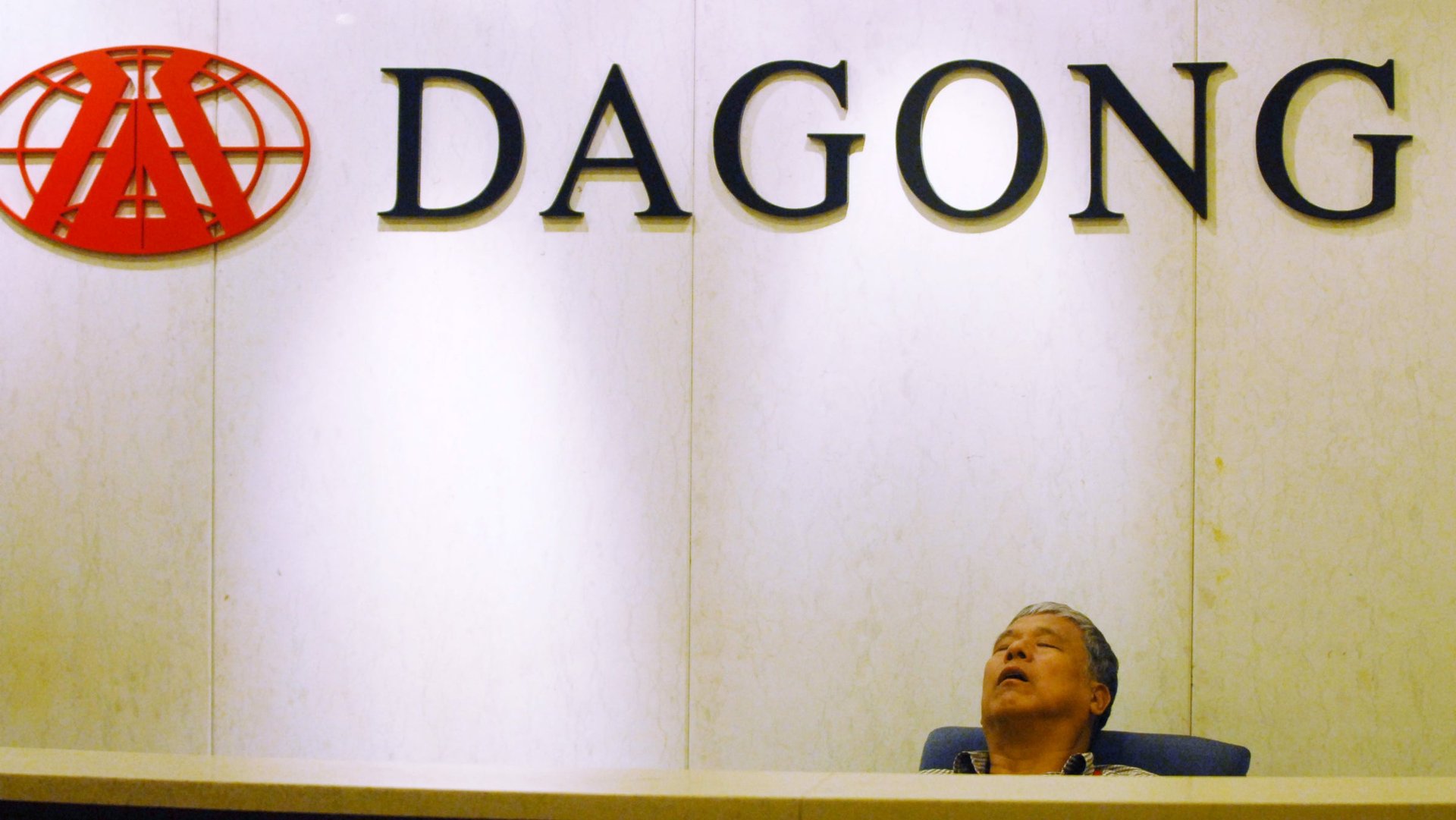China’s leading credit-rating agency gets Europe’s OK to topple the “hegemony” of Western rivals
China’s leading credit ratings agency, Dagong Global Credit Rating Co, has struggled for years to be taken seriously. Even though it’s made some prescient calls—like its 2011 downgrade of US sovereign debt—its blind spot on certain Chinese debt and penchant for colorful rhetoric has hurt its credibility.


China’s leading credit ratings agency, Dagong Global Credit Rating Co, has struggled for years to be taken seriously. Even though it’s made some prescient calls—like its 2011 downgrade of US sovereign debt—its blind spot on certain Chinese debt and penchant for colorful rhetoric has hurt its credibility.
Those days are behind it, though. Europe’s securities regulator just cleared Dagong to do business in Europe.
In its press release today, Dagong says its new role will help develop the investment between China and Europe, noting that its “proprietary intellectual property rights” will help reform the regional rating system. Dagong also fulminated against the Big Three—Moody’s, Standard & Poor’s and Fitch—for having “monopolized the rating market and constantly released wrong rating information, which resulted in the twists and turns of European debt crisis that has made Europe the mostly affected area by the debt crisis [sic].”
This is the first major global market to clear Dagong. The SEC turned down its application in 2010 because it couldn’t be sure that Dagong would comply with the Securities Exchange Act; Dagong then accused the SEC of wanting it to cede its “national sovereignty” (paywall).
Though CEO Guan Jianzhong says it’s “independent,” Dagong’s close ties to the Chinese government has made it hard for some to shake the suspicion that Dagong’s analysis is politically motivated. With its methodology explained thus, one can’t imagine why:
After the World War II, the East-Asian countries made remarkable economic achievements, when their political system had yet to reform into western style. The relatively centralized political power enabled them to concentrate on solving the most urgent issues in the economic reform step by step,guaranteed the basic social stability in the period of interest transition. Their political system has proved to be very successful. By contrast, however, other countries copying the western system encountered many political obstacles in maintaining stabilitydevelopment [sic]. Therefore, every country should stick to its own political system according to its own social characteristics,make corresponding reform along with changes in reality.
Dagong doesn’t exactly back away from charges that it’s “political,” though. In fact, that’s why it criticizes the Big Three:
Deeply rooted in the western political tradition, the western political ideology, which only came to mature when the economy reached a certain stage, does not apply universallyeternally [sic]. Thus, as human society marches on, the western countries also need to adjust their political system to keep up with the time. That the three rating agents insist on evaluating political risksinstitutional soundness [sic] by western political ideology only reflects their failure to study various countries’ social reality, leaving the impression of advocating western values without distinction.
It remains to be seen whether Dagong can give the Big Three a run for their money. One thing’s for sure, though. It won’t be competing with them in China. Though two smaller Chinese agencies are minority-owned by Fitch and Moody’s, the government forbids foreign companies from directly rating its yuan-denominated bonds.